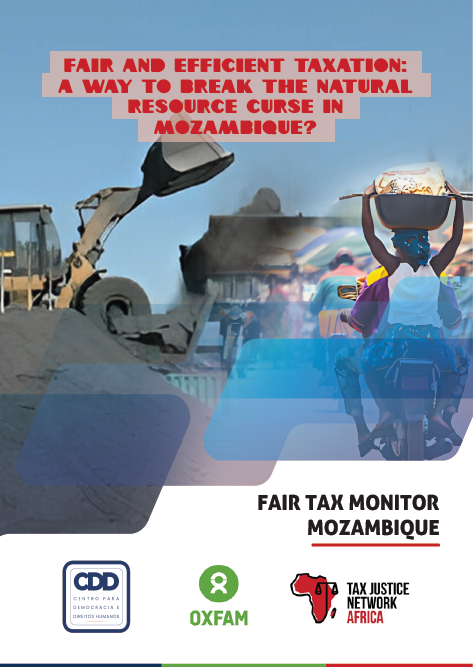By Henrique Alencar, Policy Advisor Tax and Inequality at Oxfam and Adelson Rafael, Just Economy & Livelihoods Program Officer, Oxfam Mozambique
Over the past four months, Mozambique has faced extreme levels of social unrest and protests following the general elections of October 2024. Initially driven by allegations of electoral fraud, the demonstrations soon expanded to broader frustrations over rising living costs, unemployment, and worsening economic conditions. On the streets, protesters have voiced anger over escalating food and fuel prices, failing public services, and the government’s failure to address these pressing issues, transforming the demonstrations into a wider struggle for both political and economic justice.[1]

While the situation in the country is extremely complex and involves multiple challenges, the 2023 Mozambique Fair Tax Monitor report clearly identifies a lack of public revenues and decaying public services as cross-cutting issues that impact all Mozambicans and fuels social unrest. The report underscores the urgent need for reforms in public finance management and taxation to address systemic problems and support the Mozambican population.
Mozambique’s has a complex social and economic context, with high levels of inequality and a history of civil war (1975-1992) and political instability. It has one of the lowest positions in the human development index (ranking 185th out of 191 countries), with 65% of the population (around 21 million Mozambicans) living under the poverty line. Moreover, Mozambique is characterised by limited access – and lack of proper funding – to education, healthcare and basic services.
As a textbook example of a country experiencing the worst of the resource curse, Mozambique is rich in natural resources such as coal, gas, oil and minerals – including so called transition minerals required for a global energy transition. While natural resource exploration occurs in many areas of the country, the exploration of liquified natural gas in Cabo Delgado is well known for a number of alarming issues, including repeated human rights violations. In a complex context that includes the Islamist insurgency group al-Shabab and extensive military and paramilitary presence, local residents have suffered abuses from multiple actors, including the forced removal of local residents, indiscriminate violence during periods of conflict and a fundamental disregard for the principle of informed consent for the extractive activities carried out. At the same time, the Cabo Delgado province has received just 0.4 percent of gas revenues, illustrating the essential disregard towards revenue-sharing and the principle that the regions most impacted by extractive activities should benefit from fiscal revenues.
The 2023 Fair Tax Monitor of Mozambique identifies a number of structural issues and areas on public finance management, taxation and overall public governance that require policy reform and improvement. The report shows that there is significant room to increase the fairness of the tax system in Mozambique, including by raising more revenue and doing so in a much more progressive way.
While the citizens of the country are trapped in poverty and experience underfunded essential public services, Mozambique continues to hand out tax incentives to multinational corporations, particularly in the extractive sector. In 2021, Mozambique foregone 15,3% of its annual revenues (more than the public health budget) with a structural lack of transparency that raises concerns about political capture and widespread corruption practices.
Another significant area of concern is the network of bilateral tax treaties of Mozambique, which severely reduce the ability of the country to collect taxes from multinational corporations operating in the extractive sector. In particular, the treaties with Mauritius and the United Arab Emirates were estimated to cost USD315 million in reduced tax rates on interest and dividend payments in 2021 – equivalent to 7.4% of the country’s total tax revenue. In addition to the inefficient use of corporate tax incentives and international tax avoidance strategies by multinational corporations, Illicit Financial Flows also continue to cause significant revenue leakages related to the taxation of extractive resources.
While Mozambique requires much more than just improved public financial management and taxation to move past its multiple crises, an improved and progressive fiscal system that ensures revenues are available for public services and public development are essential as starting blocks of a better future. The international community and development partners also have a crucial role to play in supporting these efforts and ensuring that the voices of Mozambicans are heard.
[1] https://www.dw.com/pt-002/mo%C3%A7ambicanos-voltam-%C3%A0s-ruas-para-exigir-melhores-condi%C3%A7%C3%B5es-de-vida/a-71644308
